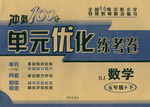题目内容
【题目】For most caffeine(咖啡因)consumers, its main benefit is that it helps you get more done. This is what makes it unusual, says Stephen Braun, author of Buzz: The Science and Lore of Alcohol and Caffeine.
“Its appeal is that it helps us earn more money,” he adds. “What makes it different from other drugs is that it’s used as a productivity tool –– not for pleasure.”
Many of history’s creative minds have also been connected with a large amount of caffeine consumption (消耗).
According to one biographer, the French novelist and playwright Balzac drank as many as 50 cups of coffee a day. “Were it not for coffee one could not write, which is to say one could not live,” he once insisted.
For seven years, the film-maker David Lynch ate at the same Los Angeles diner every day, drinking up to seven sweetened cups of coffee “with lots of sugar” in one sitting, which he said would guarantee that “lots of ideas” arrived.
Ludwig van Beethoven was said to have painstakingly counted out exactly 60 coffee beans per cup when he brewed(煮)coffee.
Perhaps recent tales of caffeine excess (过量) featured the singer Robbie Williams, who reportedly consumed 36 cups of black coffee and 20 cans of Red Bull a day.
It is the routine task itself, as much as the stimulating(刺激的)effects of caffeine, that makes the process so important, says Mason Currey, author of Daily Rituals: How Artists Work. “A lot of artists use the process of making coffee as a gateway to the creative process,” he adds. “You need to get into the right mindset to do that sort of work, and the preparation process provides a focus.”
One problem with attempting to control caffeine, says Braun, is that it affects everyone differently –– it is impossible to work out a “safe” limit that works for everyone. “Eventually, you have to become your own scientist –– there isn’t an alternative to careful self-experimentation,” he says.
【1】The examples of some famous people are given to show that _______.
A. most artists like drinking coffee
B. drinking coffee helps artists make more money
C. there’s a link between drinking coffee and creating ideas
D. drinking coffee makes artists become more successful
【2】What leads to the artists’ creative process according to Mason Currey?
A. Being lost in thought. B. Drinking the coffee.
C. Brewing the coffee. D. Getting a good mindset.
【3】What does Braun advise us to do in the end?
A. To drink less coffee.
B. Never to limit caffeine use.
C. To work out a safe level of caffeine use.
D. Never to take more coffee than you need.
【答案】
【1】C
【2】C
【3】D
【解析】
试题分析:咖啡不但可以帮助人们提神和提高工作效率,而且还可以帮助艺术家们产生灵感。尽管如此,我们对咖啡的饮用应该控制在一个适度的范围。
【1】C主旨大意题。通过第三段中Many of history’s creative minds have also been associated with some large amount of caffeine consumption.和下文对四位名人的描述可知,他们都通过喝咖啡来获得创意与灵感。故选择C项。
【2】C细节理解题。由倒数第二段的“A lot of artists use the process of making the coffee as a gateway to the creative process,”可知,Mason Currey认为正是制作咖啡的过程帮助艺术家进入创作的状态,故选择D项。
【3】D推理判断题。在文章最后一段Braun指出,就咖啡因的食用而言,我们很难制定出一个适用于所有人的安全标准,重要的是每个人成为自己的科学家。其言外之意是喝咖啡别过量,故选择B项。
【学法指导】
事实询问题,这类试题通常以疑问词what/who/when/where/why/how引起的特殊问句,就文章中某一词语、某一句子、某一段落或某一具体细节和事实进行提问。解答此类试题首先要弄清题目和每一个选项的含义,然后按题目要求寻找与之相关的细节,正确估计答案来源。同时要注意题目和文章中的暗示作用,特别注意辨别各种信息,确认各种信息。比如第34小题C细节理解题。由倒数第二段的“A lot of artists use the process of making the coffee as a gateway to the creative process,”可知,Mason Currey认为正是制作咖啡的过程帮助艺术家进入创作的状态,故选择D项。

 冲刺100分单元优化练考卷系列答案
冲刺100分单元优化练考卷系列答案